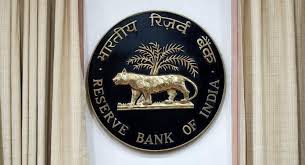Amazon Pay, Adyen, and Billdesk Obtain RBI Cross-Border Payment License
Introduction to the News
In a significant development for the digital payment sector, Amazon Pay, Adyen, and Billdesk have received a cross-border payment license from the Reserve Bank of India (RBI). This landmark decision allows these entities to facilitate international transactions directly, enhancing their service offerings and expanding their operational scope.
Amazon Pay’s Expansion into Cross-Border Payments
Amazon Pay, a leading digital payment platform, has been granted permission by the RBI to conduct cross-border transactions. This move signifies Amazon Pay’s commitment to enhancing its global payment solutions. By acquiring this license, Amazon Pay aims to streamline international transactions for its users, providing a seamless experience for cross-border payments and expanding its reach in the global market.
Adyen’s Global Payment Capabilities
Adyen, a global payment company, has also been authorized by the RBI to process cross-border payments. Known for its comprehensive payment solutions, Adyen’s new license will enable it to offer direct international payment services. This development is expected to bolster Adyen’s presence in India and strengthen its ability to support global merchants with efficient cross-border payment solutions.
Billdesk’s Role in International Transactions
Billdesk, a prominent player in the Indian payments ecosystem, has joined Amazon Pay and Adyen in securing the RBI’s cross-border payment license. With this license, Billdesk will be able to facilitate international transactions, expanding its service portfolio. This strategic move will enable Billdesk to cater to a broader range of financial transactions, both within India and globally.
Impact on the Indian Payment Industry
The RBI’s decision to grant cross-border payment licenses to these major players marks a significant shift in the Indian payment industry. It opens up new avenues for digital payments, fosters competition, and enhances the efficiency of international transactions. The move is expected to drive innovation and provide consumers with more options for cross-border transactions.

Why This News is Important
Strengthening India’s Payment Infrastructure
The RBI’s grant of cross-border payment licenses to Amazon Pay, Adyen, and Billdesk strengthens India’s digital payment infrastructure. This move aligns with the government’s vision to make India a global hub for digital transactions and enhances the country’s position in the international financial landscape.
Enhanced Consumer Experience
With these licenses, consumers can expect improved cross-border transaction services. The ability to conduct international payments directly through trusted platforms like Amazon Pay, Adyen, and Billdesk promises a more seamless and efficient user experience, reducing the complexities associated with cross-border transactions.
Increased Competition and Innovation
The entry of these major players into the cross-border payment sector will foster increased competition. This competitive environment is likely to spur innovation, leading to better services, lower costs, and more advanced features for consumers and businesses alike.
Economic Implications
The expansion of cross-border payment capabilities can have positive economic implications. By facilitating smoother international transactions, these companies contribute to greater financial inclusion and support the growth of global trade, which can benefit the Indian economy in the long run.
Regulatory Milestones
The RBI’s decision represents a significant regulatory milestone. It reflects the central bank’s willingness to adapt to the evolving global payment landscape and supports the growth of digital payment solutions in India, setting a precedent for future regulatory actions.
Historical Context
Growth of Digital Payments in India
The growth of digital payments in India has been remarkable over the past decade. With the introduction of the Unified Payments Interface (UPI) and other digital payment initiatives, India has rapidly adopted electronic transactions. The RBI’s recent move to grant cross-border payment licenses continues this trend, reflecting the country’s progress in integrating with global financial systems.
Previous Regulations and Licenses
Historically, cross-border payments in India have been regulated under stringent norms. The RBI’s regulatory framework has evolved to accommodate the increasing demand for international transactions while ensuring security and compliance. The recent licenses granted to Amazon Pay, Adyen, and Billdesk signify a progressive step towards more inclusive and accessible global financial interactions.
Key Takeaways from Amazon Pay, Adyen, and Billdesk Obtaining RBI Cross-Border Payment License
| Serial Number | Key Takeaway |
|---|---|
| 1 | Amazon Pay, Adyen, and Billdesk have received cross-border payment licenses from the RBI. |
| 2 | This development allows these companies to facilitate international transactions directly. |
| 3 | The move is expected to enhance the global payment capabilities of these platforms. |
| 4 | Increased competition is likely to drive innovation and improve cross-border payment services. |
| 5 | The RBI’s decision aligns with India’s goal to strengthen its digital payment infrastructure and integrate with global financial systems. |
Important FAQs for Students from this News
1. What is the significance of the RBI granting cross-border payment licenses to Amazon Pay, Adyen, and Billdesk?
The RBI’s grant of cross-border payment licenses to Amazon Pay, Adyen, and Billdesk allows these companies to facilitate international transactions directly. This move enhances their global payment capabilities, fosters competition in the payment industry, and aligns with India’s vision to strengthen its digital payment infrastructure.
2. How will the new RBI licenses impact consumers?
Consumers will benefit from improved cross-border transaction services. They can expect a more seamless and efficient experience when making international payments through these licensed platforms, potentially reducing the complexity and cost associated with cross-border transactions.
3. What are the potential benefits for businesses with these new cross-border payment licenses?
Businesses can leverage these licenses to conduct international transactions more effectively. This will facilitate smoother global trade, enhance financial inclusion, and potentially reduce transaction costs, supporting business growth and expansion in international markets.
4. How does this development fit into the broader context of India’s digital payment growth?
This development reflects the ongoing progress in India’s digital payment sector. It signifies the country’s integration into the global financial system and supports the growth of digital transactions, continuing the trend of increased adoption and innovation in the financial technology space.
5. What historical changes in regulations have influenced the RBI’s decision to grant these licenses?
Historically, cross-border payments in India have been regulated under strict norms. The RBI’s evolving regulatory framework has adapted to the growing demand for international transactions while ensuring security. The recent licenses are part of a broader trend towards more inclusive and accessible global financial interactions.
Some Important Current Affairs Links


















